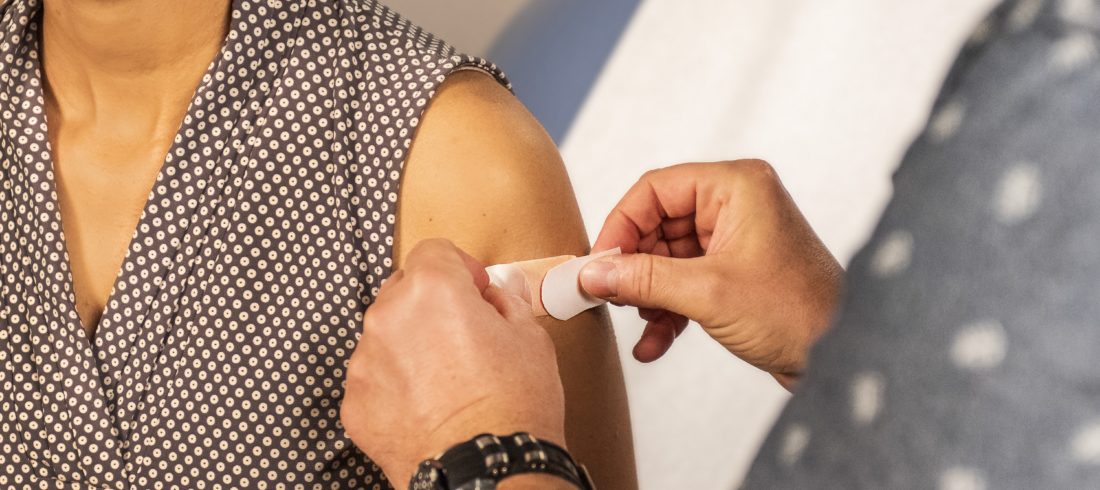What’s the difference between a third shot and a booster?
Data supports the need for a booster shot
According to the Centers for Disease Control (CDC), recent studies show that over time, after getting vaccinated against COVID-19, the protection against the virus and the ability to fight infection with variants may decrease. The data shows that this reduction in protection and ability to prevent infection is particularly evident in people aged 65 years or older.
Benefits of a booster dose – reduced risk of infection and severe disease
The latest evidence from clinical trials, as reported by the CDC states: “Data from clinical trials showed that a booster shot increased the immune response in trial participants who finished a Pfizer-BioNTech or Moderna primary series 6 months earlier or who received a J&J/Janssen single-dose vaccine 2 months earlier. With an increased immune response, people should have improved protection against getting infected with COVID-19. For Pfizer-BioNTech and J&J/Janssen, clinical trials also showed that a booster shot helped prevent severe disease.” Briefly, the booster is designed to help people maintain their level of immunity for longer.
I’ve heard about a third shot or an additional shot, is that a booster?
The third or additional shot or dose are not the same as a booster. The third or additional COVID-19 vaccine is recommended for people who have moderate to severely compromised immune systems and who are aged 5 and older. Your immune system helps your body fight infections. People who are immunocompromised are especially vulnerable to COVID-19. Everyone, including immunocompromised people, should receive a COVID-19 vaccine primary series if they are 5 years and older as soon as possible. This includes those who:
- Have been receiving active cancer treatment for tumors or cancers of the blood
- Received an organ transplant and are taking medicine to suppress the immune system
- Received a stem cell transplant within the last two years, or are taking medicine to suppress the immune system
- Are diagnosed with moderate or severe primary immunodeficiency
- Are diagnosed with HIV and have a high viral load or low CD4 count, or are not currently taking medication to treat HIV
- Are taking drugs like high-dose steroids or other medications that may cause severe suppression of the immune system
It is most likely your provider will have let you know that you are eligible for the third dose, which is typically given about a month after the initial vaccine series. It is intended to improve immunocompromised people’s response to the initial vaccine series. If you think you might be eligible for a third dose, based on your condition, ask your Premier Medical Group provider.
Who should get a booster, and when?
The recent emergence of the Omicron variant further emphasizes the importance of boosters. Booster shots are recommended for healthy individuals who finished their Pfizer-BioNTech or Moderna primary series 6 months earlier or who received a J&J/Janssen single-dose vaccine 2 months earlier.
If we need a booster shot, are the vaccines working?
COVID-19 vaccines are working well to prevent severe illness, hospitalization, and death. However, public health experts are starting to see reduced protection over time against mild and moderate disease, especially among certain populations. That is why the boosters are recommended, to improve protection over time.
Are there side effects from getting a booster shot?
Adults and children may have some side effects from a COVID-19 vaccine, including pain, redness or swelling at the injection site, tiredness, headache, muscle pain, chills, fever, and nausea. Serious side effects are rare, but may occur.
We recommend you get vaccinated, get your booster and wear a mask in this high-risk period
Your providers at Premier Medical Group care a great deal about you remaining healthy. Although you may have heard that the Omicron variant is “mild,” that applies only to those who are vaccinated. It is essential that you take precautions as it is not possible to know what type of COVID-19 you are being exposed to and there is still the Delta variant around as well. Our area is undergoing a surge and vaccination and self-protection are your best ways to avoid the virus.

